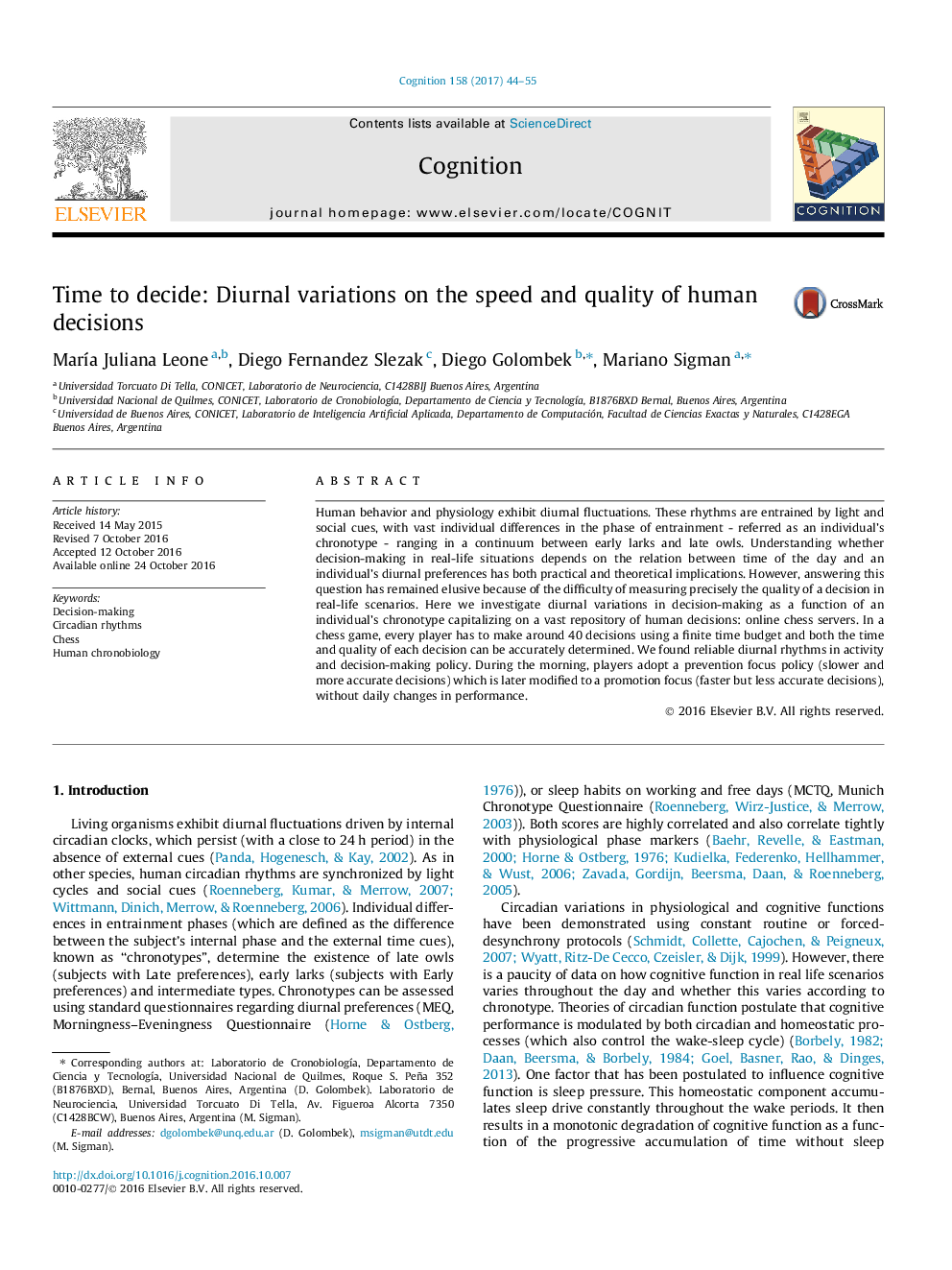| Article ID | Journal | Published Year | Pages | File Type |
|---|---|---|---|---|
| 5041680 | Cognition | 2017 | 12 Pages |
Human behavior and physiology exhibit diurnal fluctuations. These rhythms are entrained by light and social cues, with vast individual differences in the phase of entrainment - referred as an individual's chronotype - ranging in a continuum between early larks and late owls. Understanding whether decision-making in real-life situations depends on the relation between time of the day and an individual's diurnal preferences has both practical and theoretical implications. However, answering this question has remained elusive because of the difficulty of measuring precisely the quality of a decision in real-life scenarios. Here we investigate diurnal variations in decision-making as a function of an individual's chronotype capitalizing on a vast repository of human decisions: online chess servers. In a chess game, every player has to make around 40 decisions using a finite time budget and both the time and quality of each decision can be accurately determined. We found reliable diurnal rhythms in activity and decision-making policy. During the morning, players adopt a prevention focus policy (slower and more accurate decisions) which is later modified to a promotion focus (faster but less accurate decisions), without daily changes in performance.
